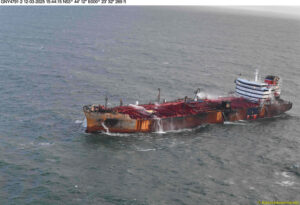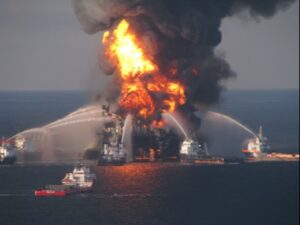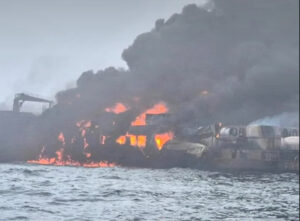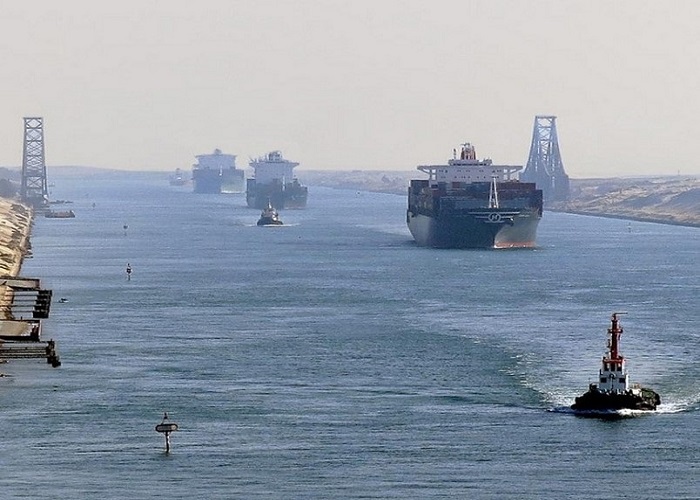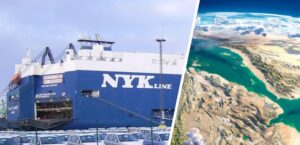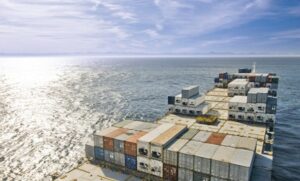Boskalis on the cusp of starting inspection work to ward off oil spill threat from decaying tanker
Dutch offshore services provider Boskalis is getting ready to start a thorough inspection of a rapidly decaying floating storage offshore (FSO) unit moored off the Red Sea coast of Yemen and its cargo prior to starting salvage operations to transfer the oil from this tanker to a safe vessel, as part of the UN-led efforts to stave off a potential catastrophic oil spill.
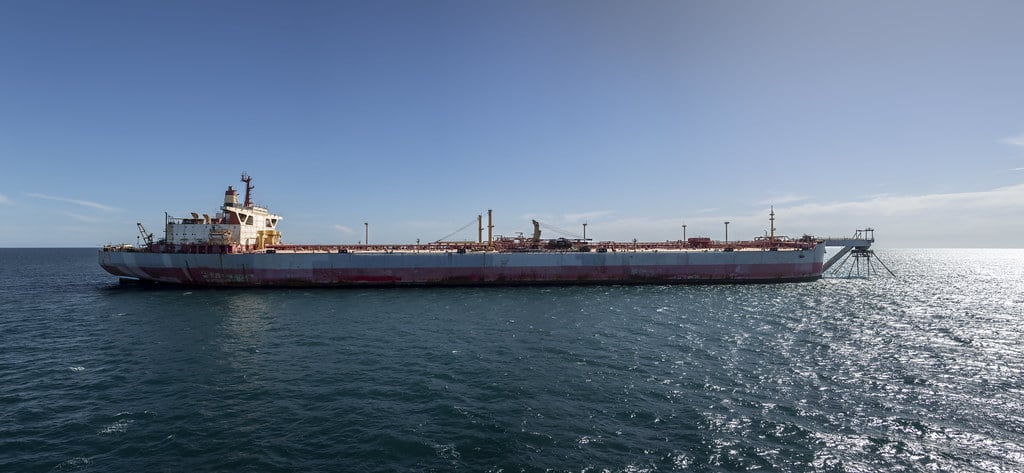
The salvage operations to secure the 376-metre-long FSO Safer, an oil tanker off the coast of Yemen, have been delayed multiple times in the past due to lack of funding. This FSO is in danger of exploding and unleashing a disaster, estimated to have the potential for a massive oil spill four times worse than the Exxon Valdez disaster off Alaska in 1989.
The plan to address the threat posed by the FSO Safer comprises two critical tracks, which cover a four-month emergency operation by a global maritime salvage company to transfer the oil from the FSO to a temporary vessel and the installation of a long-term replacement vessel or another capacity equivalent to the FSO within a target of 18 months.
While the two-track plan has an overall cost of $144 million, the cost of cleanup alone would be $20 billion if this oil spill is not prevented. The FSO Safer has been moored some 4.8 nautical miles southwest of the Ras Issa peninsula on Yemen’s west coast for more than 30 years but the war between the pro-government coalition and Houthi rebels saw offloading from the vessel, as well as maintenance, grind to a halt in 2015.
Due to years of neglect, the FSO could lead to an enormous oil spill in the Red Sea with serious humanitarian, ecological, and economic repercussions. In a bid to mitigate the threat posed by this ageing supertanker in an advanced state of decay, the UN Development Programme (UNDP) signed an agreement in March 2023 to purchase a very large crude carrier (VLCC), the Nautica, to take on the oil from the FSO Safer by emergency ship-to-ship transfer. The Nautica left Zhousha in China on 6 April and was expected to arrive in the Red Sea in early May.
Furthermore, UNDP also inked an agreement with Boskalis, through its subsidiary SMIT Salvage, to remove oil from the tanker. Boskalis’ project scope consists of a number of phases with the initial onsite phase focusing on a thorough inspection of the vessel and its cargo and creating a safe working environment.
To this end, the multipurpose support vessel Ndeavor was prepared in the Netherlands. The vessel left Djibouti on 29 May 2023 and set sail for Yemen where it would be deployed for the FSO Safer oil transfer operation. The salvage crew made the final preparations in Djibouti before departing for the site. The following day, Boskalis’ multipurpose support vessel reached the location of the FSO Safer in Yemen.
Nabil Hayel Saeed Anam, Managing Director of HSA Group – Yemen region, said: “HSA Group welcomes the commencement of the FSO Safer salvage operation – which will prevent a major humanitarian, economic, and ecological disaster in the Red Sea. We have closely followed the campaign led by the UN and are grateful for the generous donations pledged by the international community.
“We are proud to have been the first private sector organisation to contribute to the recovery efforts, which will protect the lives and livelihoods of millions of Yemenis. A spill on the scale predicted by the UN would cost an estimated $20 billion to clean up and have an unprecedented impact on Yemen.
“We hope that commencement of the operation may serve to encourage other private sector organisations across the world to contribute to the UN’s response, ensuring that we prevent a spill now and save tens of billions of dollars in the future.”
After berthing the vessel alongside the oil tanker, the next phase of the salvage operation is expected to begin, consisting of multiple precautionary measures by the salvage team, including different gas measurements being taken to assess the presence and levels of gasses inside the vessel prior to declaring it “safe to access” for planned salvage activities.
Moreover, further visual inspections will be conducted whilst wearing specialized protective gear on board the FSO Safer, including the pump and engine rooms as part of the overall condition assessment along with the loading of mobile inert gas generators to fill the cargo tanks with inert gas and create a safe tank environment.
In addition, the condition of the cargo will be assessed to finetune the transfer operation while the cargo and inert gas lines, valves, and manifolds will be inspected, and subject to the outcome, the salvage plan would be refined. Aside from this, an inspection of the state of the mooring arrangements will be done and underwater inspections will be executed where necessary.
Achim Steiner, UN Development Programme Administrator, commented: “With the marine salvage support vessel Ndeavor onsite, the project can now begin in earnest. This marks the culmination of tremendous amounts of work and coordination among UN agencies, maritime lawyers, oil spill experts and many more.
“This is a proud moment for the United Nations and for the UN Development Programme as the implementing partner for the emergency phase of the project to remove the oil. It is also a clear sign of what multilateral cooperation can achieve, and a prime example of the importance of prevention.”
After the vessel and its cargo tanks are declared safe, the UN-purchased Nautica, which is standing by in Djibouti to travel to the site next month and receive the oil, will come alongside, so that, the ship-to-ship oil pumping operation can start while the FSO’s tanks will subsequently be cleaned and the residual water will also be transferred into the VLCC.
The entire onsite operation is expected to be completed within two months and once Safer is declared clean and empty, it will be prepared for towing to a green scrapping yard under the responsibility of the UN. The FSO Safer contains more than a million barrels of oil and is considered to be beyond repair, as it could soon break apart or explode. According to the UN, this is “enough to make it the 5th largest oil spill from a tanker in history.”
This sort of calamity would be a repeat of the Ever Given disaster, which disrupted global trade over a year ago when it ran aground in the Suez Canal. If the FSO Safer threat is not averted, vital shipping through the Bab al-Mandab Strait to the Red Sea could be disrupted for an extended period, costing billions of dollars per day.
Even after the oil transfer averts the worst-case scenario of a spill of 1 million barrels, the UN claims that the decaying tanker will still hold a considerable amount of residual oil and pose a significant environmental threat to the Red Sea. As the project remains underfunded, $29 million is still needed to safely moor the replacement vessel to a catenary anchor leg mooring buoy and tow the FSO Safer to a green recycling yard.
David Gressly, UN Humanitarian Coordinator for Yemen, remarked: “Member states, private companies and the general public have contributed $114 million to stop the Red Sea spill, and so many other partners that have contributed expertise and advocated for this critical operation. I thank them all and want to recognise SMIT Salvage and the Fahem Group for presenting an initiative in 2021 that became the basis of the project being implemented today.
“This is a great milestone, but we will not rest easy until the operation is completed. To do that we are counting on generous donors to close the remaining $29 million budget gap.”

